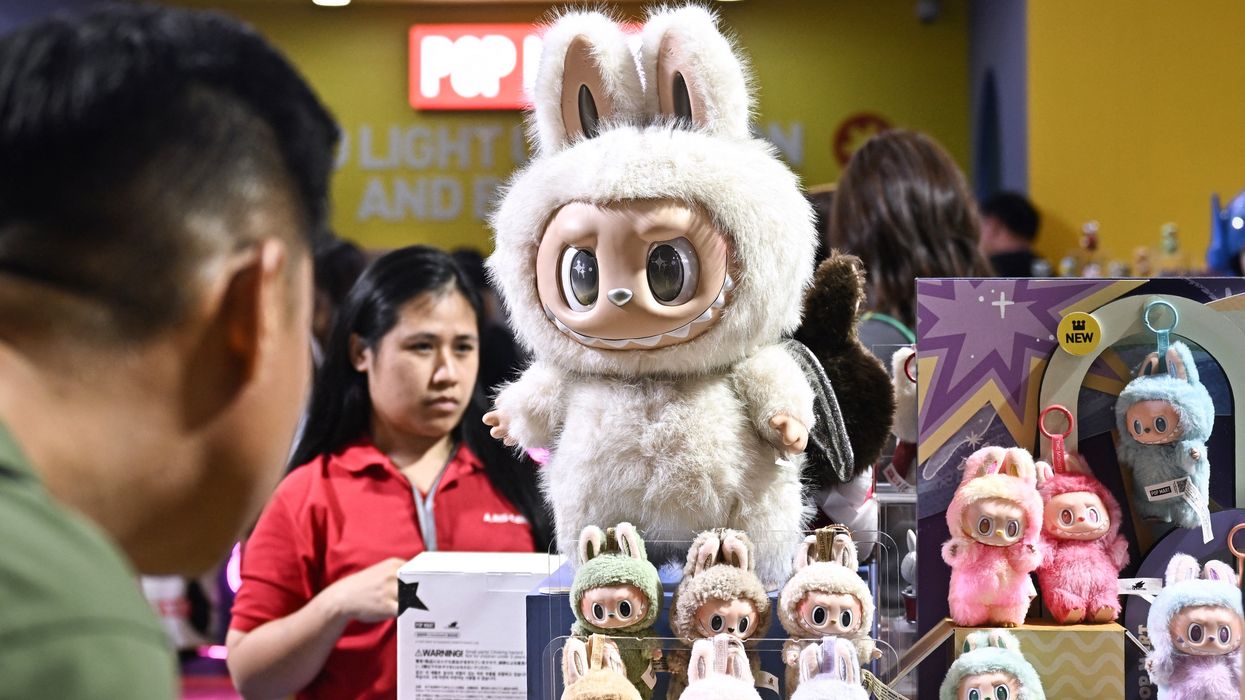A curious-looking creature with a snaggletoothed grin, curly fur, and long ears has taken the UK by storm. Known as Labubu, this quirky character is part of the Monster series by Hong Kong-born artist Kasing Lung, produced by Chinese toy giant Pop Mart. Though around for over a decade, Labubu and its blind box counterparts have recently exploded in popularity, driven by viral TikTok trends and celebrity endorsements.
The blind box trend, familiar to fans of Japanese collectables like Sonny Angels or Smiskis, offers a simple but addictive premise: buy a sealed box without knowing which character you’ll get. Labubu has become the standout face of this phenomenon, sparking a collector frenzy across the UK.
What is Labubu?
Labubu is just one of many characters in Pop Mart’s Monster series. Inspired by Nordic folklore, it blends an “ugly-cute” aesthetic with a strong dose of mystery. Each Labubu comes in a series with a selection of styles, and always includes one rare “secret” design that is particularly hard to find. For example, in the Big Into Energy collection, the odds of unboxing the secret rainbow-toothed grey Labubu are 1 in 72.
The appeal? It’s a mix of nostalgia, rarity, and the thrill of the unknown. For many collectors in the UK, the experience mirrors childhood memories of lucky bags or trading Pokémon cards, but with a more stylish, adult edge. TikTok is flooded with over 1.3 million posts under the #labubu hashtag, with unboxing videos, trade swaps, and collection showcases forming a vibrant online community.
Celebrity and social media boost
Labubu’s popularity is no longer niche. Pop stars such as Dua Lipa, Lisa of BLACKPINK, and even Rihanna have been spotted with Labubu merchandise. Influencers and collectors across the UK, including former Love Island contestant Olivia Attwood, have also helped raise the profile of these odd little creatures.
Dublin-based collector Davie Jordan Andrews has built his own TikTok following through Labubu-related content, including unboxing videos and sourcing tips. “When I posted my video, I got over 100 messages asking where I got mine,” he said. “There’s a real community feel. People help each other find the figures they want—it’s wholesome.”
Why are they so popular in the UK?
The Labubu UK craze stems partly from scarcity. Pop Mart’s UK stores saw overwhelming demand for the toys, with reports of scuffles breaking out among customers. This led the company to temporarily pull Labubu stock from all 16 of its UK outlets, citing “potential safety issues.”

Adding to their appeal is a strong element of “completionism.” Each series has a defined set of characters, and collectors are often determined to complete the entire run. This pursuit taps into the same psychological drivers that fuel gaming, achievement-hunting and stamp collecting. It also creates a highly active resale and trading market, with rare Labubus sometimes reselling for far above their retail price.
A growing global industry
Blind box toys are no longer a fringe interest. According to market analysts, the global value of blind box collectables is projected to hit $391.62 billion by 2030. Pop Mart, along with Japanese counterparts like Dreams Inc., is riding this wave with artist collaborations and limited-edition drops that keep collectors engaged and coming back for more.
Labubu’s rise in the UK is part of a broader trend where adult consumers seek out nostalgic joys in modern, design-driven formats. While traditional toys were once considered children’s domain, today’s blind box figures are marketed with sophistication, often viewed as art or lifestyle decor as much as playthings.
Concerns over waste and sustainability
With rising popularity, however, come concerns. Each blind box figure comes in multiple layers of packaging—foil, film, and cardboard—much of which may not be recycled. Pop Mart has said it uses recyclable cardboard and biodegradable CPP film for its bags, and it encourages customers to recycle. Still, critics argue that the environmental impact of mass-produced plastic figurines shouldn’t be overlooked.
As public pressure grows, toy companies may soon be pushed to invest more in eco-friendly materials and more sustainable practices.
Blind box collection
Whether seen dangling from a bag, showcased on a shelf, or being carefully unboxed on TikTok, Labubu’s unmistakable grin is hard to miss. What began as a niche collectable has evolved into a full-blown cultural moment in the UK, blending social connection, nostalgia, and artistry.
As blind box collecting continues to surge, Labubu’s popularity shows no sign of slowing down. From Tube commutes to social media feeds, the UK’s fascination with the furry little monster is now firmly embedded in everyday life—and with Pop Mart’s constant flow of new designs and series, the hunt is only just beginning.





